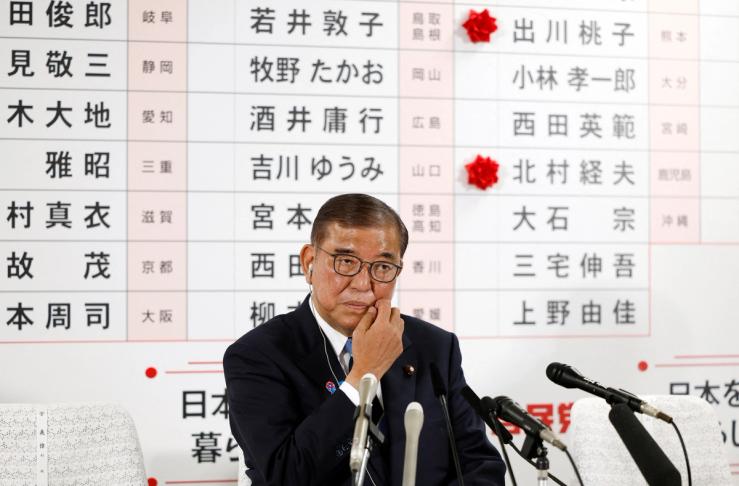Japanese Prime Minister Shigeru Ishiba vowed to stay in his post after his ruling bloc was projected to lose its majority in the country’s upper house of parliament.
The outcome of Sunday’s election doesn’t directly alter Ishiba’s coalition, but it does heap pressure and political instability on it: Ishiba’s efforts to lower prices apparently haven’t registered with voters, who are increasingly turning to populist alternatives.
He now faces the twin challenges of quelling market turmoil at home and navigating US trade negotiations, with analysts suggesting his weakened position could disadvantage Japan.
Still, choosing a new leader now would be “a matter of ‘picking chestnuts out of the fire’ — an extremely risky and undesirable task,” a Japanese politics professor said.


